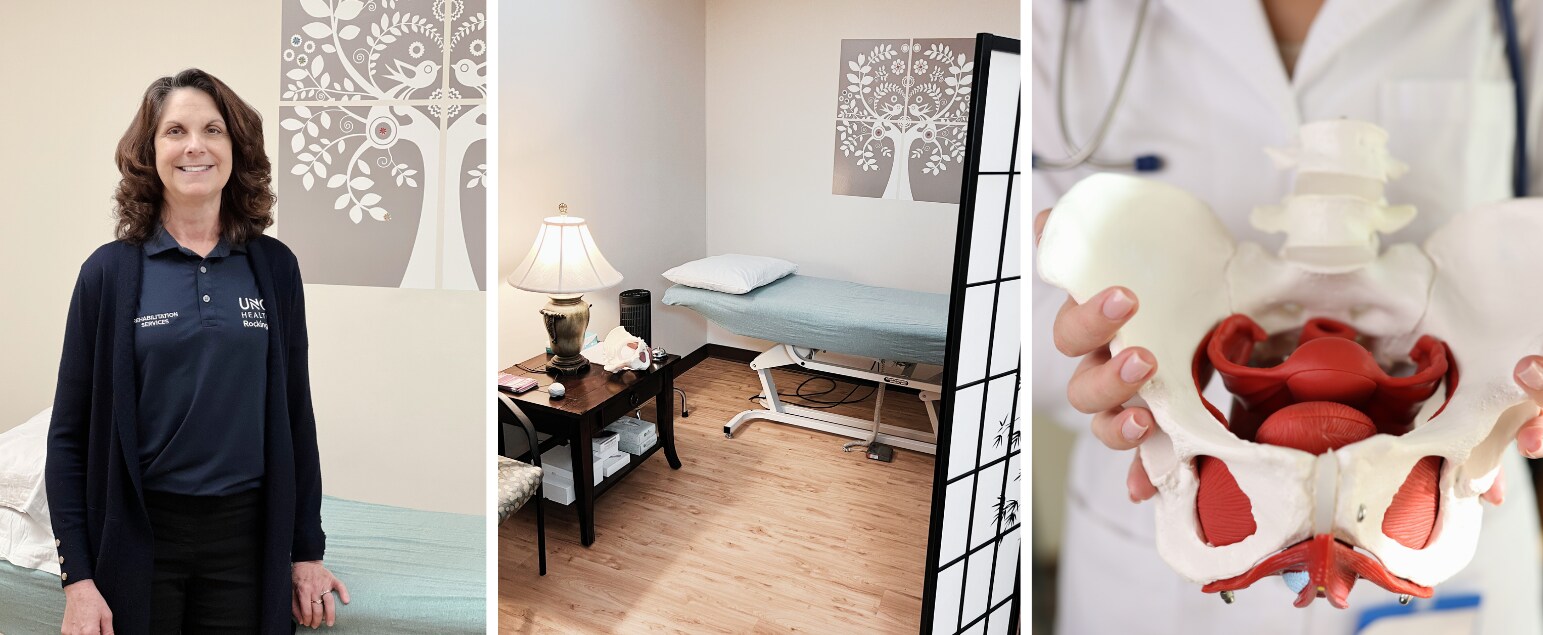
Pelvic Health Therapy
Choose UNC Health Rockingham Rehabilitation Therapy to ease your pelvic pain, improve incontinence and often help you avoid or delay the need for surgery. You’ll work one-on-one with a certified pelvic health therapist in a private treatment room to improve pelvic floor function with the goal of attaining a better quality of life.
What’s a Pelvic Floor Disorder?
The pelvic floor is comprised of the muscles, ligaments, and connective tissues that support your pelvic organs. In men, pelvic floor muscles connect and support the bladder and bowel. In women, they also support the uterus. They aid in bowel and bladder control, balance, stability and sexual function.
Pelvic floor dysfunction affects both women and men and is relatively common. This includes pelvic pain, incontinence, urinary and bowel dysfunction, and back pain with pregnancy. If parts of your pelvic floor become weak or damaged, you may feel pain or discomfort, and your organs may not have the support they need to work effectively.
Possible causes for pelvic floor muscle dysfunction include:
- Pregnancy and childbirth for women
- Straining on the toilet
- Chronic coughing
- Heavy lifting or high impact exercise
- Age
- Obesity
- Trauma
- Urological, gynecological or gastrointestinal surgery
How Does Pelvic Health Therapy Help?
Pelvic health therapy may significantly improve the quality of life of a patient and often can help avoid or delay the need for surgical intervention. UNC Health Rockingham's physical therapists work closely with you and your physician to provide a treatment plan tailored to your specific needs. Your evaluation and treatment will always be one-on-one in a private treatment room with a licensed, specially trained pelvic health therapist.
If you have one or more conditions below, therapy may help:
- Pelvic or abdominal pain
- Urinary or fecal stress and urge incontinence
- Dysfunction before and after surgery
- Voiding dysfunction, including constipation and incomplete emptying
- Back pain with pregnancy and postpartum care
- General pelvic orthopedic conditions
- Pediatric bowel or bladder issues
- Sexual dysfunction
- Diastasis recti (abdominal separation)
- Post prostate surgery
- Dysfunction post cancer treatment/radiation